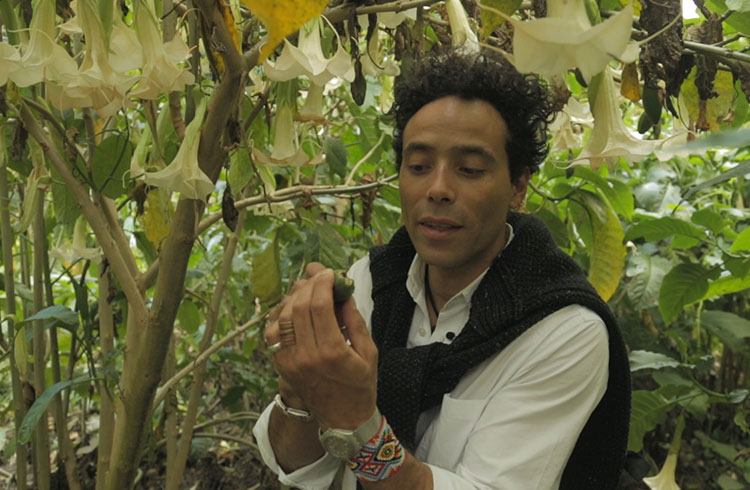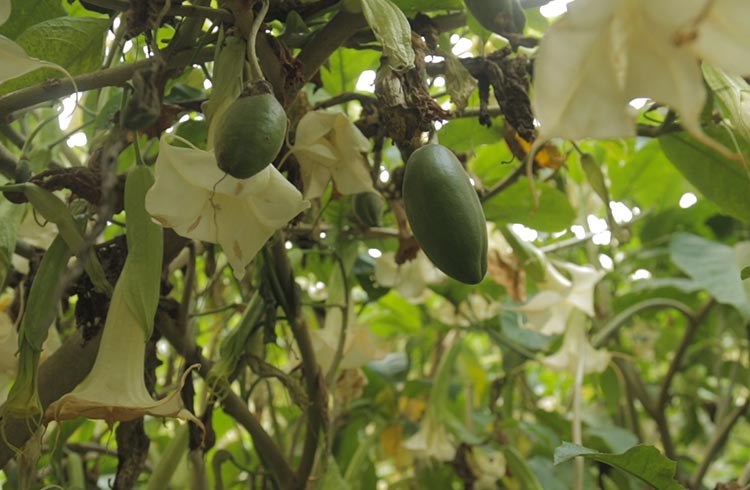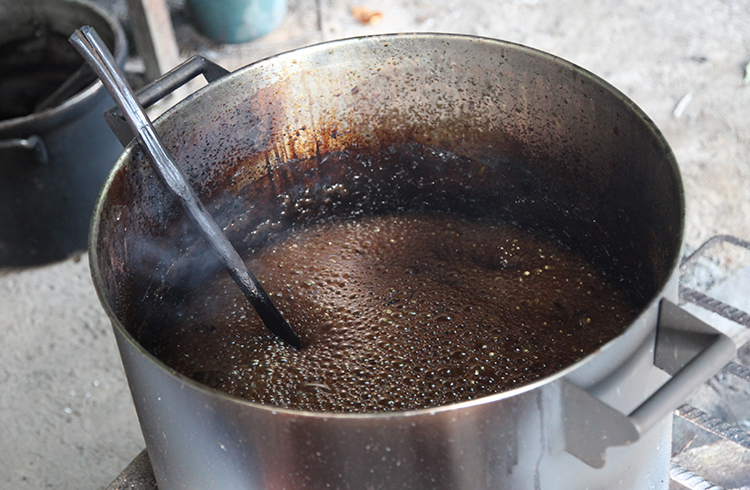Video: Why You Shouldn't Do Cocaine Visiting Colombia
Travel to Colombia with Stephanie Hunt as she learns about one of Colombia’s most notorious exports, and the mass damage it’s caused to society.
Stephanie Hunt asks locals what they think of travelers who seek out cocaine.
First, some facts: Pablo Escobar was killed in 1993, and the other drug cartels were wrapped-up by police a few years later.
After plummeting from the highs of the late '90s, cocaine production in Colombia is on the rise again. In 2014, Colombia resumed the title of the world’s largest producer of the drug. The Andean triumvirate of Colombia, Peru, and Bolivia produce almost ALL of the world’s cocaine.
Since the early 2000s, the rebel group FARC have controlled cocaine production in Colombia. In November 2016, they signed a peace deal with the government, and plan to lay down their arms and walk out of the jungle over the next couple of years.
It’s feared a number of other criminal gangs will step into the cocaine production void, a kind of Balkanisation of production, which could spark a new round of violence.
Violence is the number one reason you should not buy cocaine in Colombia.
In January 2010, Gustavo Siva Cano, writing for Colombia Reports, estimated the drug war was responsible for 450,000 homicides.
Then there’s the social impact; between 2.5 and 4 million people left their homes in search of safety.
And also, the environmental impact. Cano wrote:
“For every cultivated hectare (2.5 acres) of coca, around three hectares of forest are destroyed – and last year alone (1999) the UN found 81,000 hectares of coca inside the country. It will take time for Colombians to realize the depth of the environmental impact that drug production has had on their country.”
Cano estimated the cost to the economy at $9billion a year. That’s money that could be better spent on health, education, and infrastructure.
Although cocaine is available in Colombia for a fraction of the price you'd pay in the west, you never know exactly what it contains.
An Australian traveler on a “special tour” told the ABC in December 2015:
"I can't believe I am actually snorting it after seeing it made; cement, gasoline, battery acid, bicarbonate soda, dried paint, potassium and sulphur all went into it."
So, more than 20 years after Pablo Escobar was gunned down on a rooftop, Colombia is still reeling. The environment is permanently damaged, and so are the people. Don’t forget the vast majority of Colombians were against the drug trade, the corruption, and bloodshed. Almost everyone in Colombia has a family member or a friend who was killed in the drug war, or knows someone who has.
Every Colombian is working to pay off the debt, trying to recoup lost opportunity because of how much government money diverted to law enforcement, and away from making their life better.
They haven’t forgiven Pablo Escobar for what he did. Nor have they forgotten the hundreds of thousands of end-users in the US and around the world who created the market for cocaine.
And here you are, in your gringo board shorts and sandals, asking them if you can get some more.
Speaker 1 (00:08):
Every time a traveler does a line of cocaine. You're actually literally killing people. There's a lot of violence in the process.
Speaker 2 (00:18):
The reality of taking drugs is meaning people are killed. That women are raped. That children lose their parents.
Speaker 3 (00:25):
Every single family in Colombia has been affected by the cocaine trade.
Stephanie Hunt (00:30):
Columbia has emerged as one of the must see destinations, but it's hard to escape, the fact that some travelers who come here are on the hunt for one of the country's most notorious exports, cocaine, for those who have a taste for the drug back home, the relatively low cost in Colombia compared to skyrocketing prices in the West is an increasingly attractive reason to travel here. Also with TV series like Narcos on Netflix is a popular fascination with a life is drug Baron, Pablo Escobar, and more people are traveling to Columbia to see where the billionaire Kingpin enacted his criminal reign. If this sounds like you, it's important to take the time to know what's your really buying into. In the 1970s, cocaine exploded in popularity and for a number of decades, Columbia was by far the world's largest cocaine supplier with such high demand, for the product around the world. This led to a massive criminal enterprise, no one exemplified this criminality better than drug Barron, Pablo Escobar. At the height of his power Escobar's cartel was bringing in $420 million per week. And would you believe $1,000 a day just on rubber bands to tie up the money, but as his power grew, so did the bloodshed, it's difficult to determine, but estimates suggest that Escobar's people executed well over 4,000 Colombians, the effects of Escobar's cartel and the other cartels, which followed, are still felt in Columbia today. And it's fair to say the Colombians are still feeling pretty raw about it all.
Speaker 4 (02:14):
It's definitely increases our crime rate, you know, for locals and for foreigners, you know, putting yourself in danger of going to buy the product.
Speaker 5 (02:22):
They assume that when they're doing cocaine or they're just having fun and they're just having a party, but in reality, it's caused so much death and destruction that it would totally offend somebody here. If you walked up and asked them for cocaine.
Stephanie Hunt (02:37):
So given cocaine trafficking has caused so much damage to Colombian society. You can understand why locals have such a poor view of travelers who've come here with a hunger for the drug.
Speaker 6 (02:49):
Colombians do get upset when somebody asks them about drugs and cocaine. And we have suffered a lot for a long time because of the drug trade. And for us, it's just not funny.
Speaker 7 (03:02):
I know that it has done a lot of harm to the community and that the Colombians don't really like to speak about it. That's what we find out found out.
Speaker 3 (03:09):
You really are interfering and helping fund a conflict that has run for more than 50 years.
Stephanie Hunt (03:17):
Now to get things clear, it is legal, to possess up to one gram of cocaine in Columbia for personal use, however it's illegal to sell it. So if you are purchasing cocaine in Colombia, you are committing a criminal act. The simple reality is if you come to Columbia and ask around for drugs, you're immediately putting up the signals that you're someone with money and someone who wasn't getting involved with criminal elements. This means by involving yourself with criminals, you are opening yourself up to be robbed or worse. And finally, by purchasing cocaine, you're buying a product that continues to have devastating effects on Columbia, as well as the rest of the world. So in effect and it might be hard to hear, but if your purchasing cocaine, you're the problem. So if you're headed to this beautiful country, you'd be well served to have a think about the ethics and consequences of consuming. What can truly be called a conflict drug.
Related articles
Simple and flexible travel insurance
You can buy at home or while traveling, and claim online from anywhere in the world. With 150+ adventure activities covered and 24/7 emergency assistance.
Get a quote


No Comments